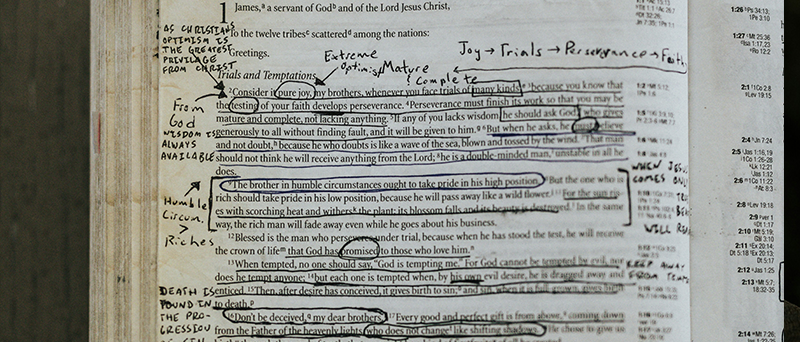
By Gregory Coles. Greg holds a PhD from Penn State, is a Senior Research Fellow at The Center, and is the author of Single, Gay, Christian, No Longer Strangers, and The Limits of My World.
Update:
A few hours after this blog post was published, Christopher Yuan’s post on X/Twitter was deleted and replaced by a slightly altered version. Whereas the original version said, “A thought by itself isn’t sin,” the new version reads, “A thought by itself can be sin.” Here are side-by-side screenshots of the original post and the altered post:
If it was indeed my commentary that inspired Christopher to make this change, then I’m honored to have him as a reader of the blog. In fact, the day before I posted my criticisms publicly, I sent them to him in a text message, in hopes of sparking a direct dialogue between us. (Alas, I didn’t hear back. It could be that his phone number has changed since we last corresponded.)
If Christopher is inclined to share (publicly or privately) about the change of heart that inspired his change of words, I’d be delighted to hear that story.
The Original Blog Post:
Two days ago, well-known Christian author Christopher Yuan posted on X (the platform formerly known as Twitter):
Temptation knocks on everyone’s door—but what happens next is what really matters. A thought by itself isn’t sin, but let it linger, feed it, and suddenly, it takes root…. The real battle isn’t just about avoiding sin—it’s about recognizing when temptation is trying to make itself at home.
For the most part, I agree with Christopher here. In fact, my primary objection is that I think he lets thoughts off the hook too quickly when he says, “A thought by itself isn’t sin.” Jesus makes it clear in the Sermon on the Mount that some thoughts (like the lustful ones) are sinful in themselves.
But let’s read Christopher charitably and assume that what he means is, “A tempting thought by itself isn’t sin.” If this is what he meant to say, I’m in wholehearted agreement. Yes and amen, Brother Yuan!
Christopher’s words caught my attention not because of their theology but because of their author. Earlier this week, Christopher was on The Alisa Childers Podcast calling out “wolves” and “false teachers,” including some of us here at The Center for Faith, Sexuality & Gender. (My colleague Preston Sprinkle gets the majority of his ire, but yours truly also makes some appearances.) And in a video on the same podcast last year, Christopher makes it clear that part of the false teaching and wolf-ery of people like Preston and me is our failure to say that tempting thoughts are sinful in themselves.
As it happens, both Preston and I have made it abundantly clear (see, for instance, here, here, here, and here) that a general pattern of sexual attraction is not the same as sexual temptation, which is not the same as sexual lust (an active desire to have sex with someone). Being same-sex or opposite-sex attracted can lead to temptation, which can in turn lead to sin, but it’s not sin in itself. In other words, as Christopher so rightly says, “A [tempting] thought by itself isn’t sin.”
Despite our apparent agreement with Christopher on this point, when Preston and I have argued that people don’t need to repent of “being gay” (in the sense of experiencing attraction or sexual temptation toward the same sex), Christopher worries that we’re not calling people to repent from their sins:
It’s not about semantics; it’s about whether we are encouraging people to sin or not sin in their thoughts and in their hearts…. It’s calling people to repentance in their thoughts.
I wonder what the Christopher Yuan of last year’s podcast would have to say to the Christopher Yuan of yesterday’s X/Twitter declaration that “A [tempting] thought by itself isn’t sin.” Based on his own metrics, he appears to now be both “false teacher” and “wolf.”
Of course, I don’t think distinguishing between sexually tempting thoughts and sexual sin makes a person a false teacher or a wolf. Not when Christopher Yuan does it. Not when Preston Sprinkle does it. Not when I do it.
But perhaps this is one of the dangers of heresy hunting: Sometimes, we hunt so vociferously that we wind up hunting ourselves.

